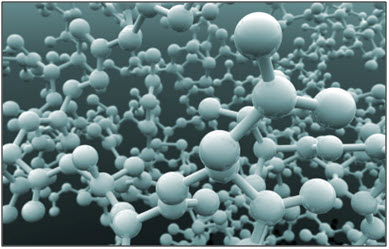Whey protein has gone through a number of phases over the years – from being used only by bodybuilders to now being used by athletes and casual exercisers at all levels.
This article will get to the core of what science says about whey protein powders. You will learn whether or not you should you use whey protein, the differences between the various types of whey protein, and how to make a smart purchase if you decide to use it.
What is Whey Protein?
Whey protein is a liquid byproduct of cheese production that is sold as a dietary supplement in protein powders and shakes. Whey protein used to be discarded by cheese manufacturers as a waste product.
Whey protein is also a “complete protein” that is fast and easy to digest. Whenever we eat a protein source, our body uses the 20 amino acids (which are the individual components of “protein”) to repair our bones, muscles, organs and virtually every body part and tissue in the human body. When a source of protein has all 9 essential amino acids, which are amino acids your body needs to get from food, that food is said to be a complete protein. Foods like meats, dairy, eggs and rare vegetable proteins such as quinoa are complete proteins. On the other hand, most vegetables, rice and starches are not complete proteins because they are missing one or more of the essential amino acids.
Not only do foods have different amino acid profiles, but the rate at which the protein is absorbed by your body can vary. Of the different measures of protein absorption, one of the most popular is Biological Value (BV). Whey protein just so happens to have the highest score possible with a Biological Value of 100. This means that whey protein contains all the amino acids needed to make a complete protein and is very easily digested by your body.
Whey Protein Benefits
While no supplement can replace a diet of whole, natural, unprocessed foods, whey protein can be useful for people with a very busy, on-the-go lifestyle as a supplement to their normal diet.
The benefits of a high-quality whey protein supplement range from purely aesthetic to health preserving. Here’s a small list of 10 benefits that have been associated with whey protein supplementation:
Specific amino acids are used by your body for specific reasons. For instance, whey protein is high in Branched-Chain Amino Acids (BCAA’s), which are 3 of the 9 essential amino acids that are of special importance for muscle repair and preservation. In both exercise and in recovery of exercise, your body will break down a small amount of amino acids for fuel (1-5%) and the specific amino acids your body uses are the BCAA’s. Although this is a small percentage overall, your body will break down muscle in order to get those BCAA’s. By providing the body with a high amount of BCAA’s, your body preserves your muscle, while the specific amino acid leucine actually stimulates protein synthesis.
This means is that leucine sends a signal to your body to increase its storage of amino acids and the way your body primarily does this is by adding muscle.
So if you’re trying to put on muscle, having enough BCAA’s is essential to both help preserve the muscle, while also helping to stimulate additional muscle growth. If you’re in a hypo-caloric state (if you’re trying to lose weight and are cutting calories), preserving muscle becomes even more important and ensuring that you have enough BCAA’s helps to keep your body from losing muscle, while simultaneously helping you to lose fat.
Another huge benefit of whey protein is that studies have indicated that glutathione production increases. Although you may have heard of Vitamin C or Vitamin E as being anti-oxidants, what your body mainly uses as an anti-oxidant to scavenge free radicals is glutathione, making it one of the most important substances in your body. Glutathione is made from three main amino acids; cysteine, glutamic acid and glycine. The rate-limiting amino acid (what limits production of glutathione) is usually the amino acid cysteine, and although the exact mechanism with whey protein intake is not known, it is theorized that the relatively high amount of cysteine in whey is what increases glutathione production.
If you look at the list of benefits from up above (assistance with cancer, HIV, decreased recovery time, etc), most of those benefits are usually attributed to the increase in glutathione production.
Whey Protein Risks?
Generally, most of the complications associated with whey protein intake have to do with digestive issues, such as gas, bloating, headaches, cramps and fatigue. None of these are generally considered life-threatening, more so than annoying complications.
Most of the literature has shown that if you’re experiencing any of have these symptoms, they are most likely due to either the lactose (found more in Whey Protein Concentrate) or sweeteners used more so than the whey protein itself. With that said, there are different methods of whey production, such as ion-exchanged that can influence how well your body can utilize the protein, leading to improper digestion of the whey itself.
The biggest fear often expressed about whey protein intake is that too much protein is “bad for the kidneys.” Research though has shown this is not true at all in healthy individuals. For those with known kidney disease, high protein diets can exacerbate pre-existing conditions. Healthy individuals, without any underlying or unknown kidney disease have nothing to worry about with higher intakes of protein.
What does occur with higher protein intakes is your body adapts to the increase in protein by increasing glomerular filtration rates (which means more fluid passes by your kidneys and there’s an increase in urine production)



No comments:
Post a Comment